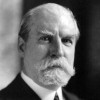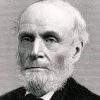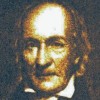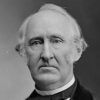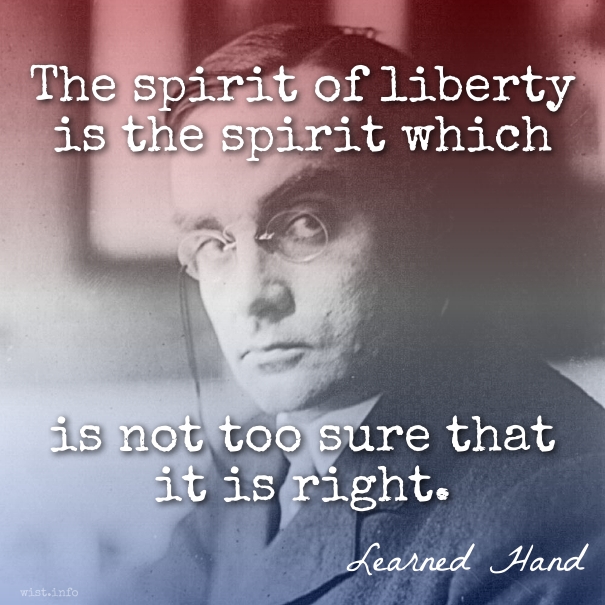Justice does not belong to the Christian way of life and there is no mention of it in Christ’s teaching. Rejoice with the joyous and weep with those who weep; for this is the sign of limpid purity. Suffer with those who are ill and mourn with sinners; with those who repent, rejoice. Be a partaker in the sufferings of all men. Rebuke no one, revile no one, not even men who live very wickedly. Spread your cloak over the man who is falling and cover him. And if you cannot take upon yourself his sins and receive his chastisement in his stead, then at least patiently suffer his shame and do not disgrace him.
St. Isaac of Nineveh (d. c. 700) Assyrian bishop and theologian [a.k.a. Isaac the Assyrian, Abba Isaac, Isaac of Syria, Isaac Syrus]
Ascetical Homilies
Quotations about:
tolerance
Note not all quotations have been tagged, so Search may find additional quotes on this topic.
There’s no end to the list; there are millions of them! And all insane; each in his own way; insane as to his pet fad or opinion, but otherwise sane and rational. This should move us to be charitable towards one another’s lunacies. I recognize that in his special belief the Christian Scientist is insane, because he does not believe as I do; but I hail him as my mate and fellow, because I am as insane as he insane from his point of view, and his point of view is as authoritative as mine and worth as much. That is to say, worth a brass farthing. Upon a great religious or political question, the opinion of the dullest head in the world is worth the same as the opinion of the brightest head in the world — a brass farthing. How do we arrive at this? It is simple. The affirmative opinion of a stupid man is neutralized by the negative opinion of his stupid neighbor — no decision is reached; the affirmative opinion of the intellectual giant Gladstone is neutralized by the negative opinion of the intellectual giant Newman — no decision is reached. Opinions that prove nothing are, of course, without value any but a dead person knows that much. This obliges us to admit the truth of the unpalatable proposition just mentioned above — that, in disputed matters political and religious, one man’s opinion is worth no more than his peer’s, and hence it followers that no man’s opinion possesses any real value. It is a humbling thought, but there is no way to get around it: all opinions upon these great subjects are brass-farthing opinions.
Mark Twain (1835-1910) American writer [pseud. of Samuel Clemens]
Christian Science, ch. 5 (1907)
(Source)
The best thing to give to your enemy is forgiveness; to an opponent, tolerance; to a friend, your heart; to your child, a good example; to a father, deference; to your mother, conduct that will make her proud of you; to yourself, respect; to all men, charity.
Clara Lucas Balfour (1808-1878) English novelist, lecturer, temperance campaigner
Sunbeams for All Seasons: Counsels, Cautions, and Precepts (1861 ed.)
True Christianity asks no aid from the sword of civil authority. It began without the sword, and wherever it has taken the sword it has perished by the sword. To depend on civil authority for its enforcement is to acknowledge its own weakness, which it can never afford to do. It is able to fight its own battles. Its weapons are moral and spiritual, and not carnal. Armed with these, and these alone, it is not afraid or “ashamed” to be compared with other religions, and to withstand them single-handed.
John Welch (1805-1891) American politician, jurist
Board of Education of Cincinnati v. Minor, Ohio Supreme Court (1872)
(Source)
I do not know many Negroes who are eager to be “accepted” by white people, still less to be loved by them; they, the blacks, simply don’t wish to be beaten over the head by the whites every instant of our brief passage on this planet. White people will have quite enough to do in learning how to accept and love themselves and each other, and when they have achieved this — which will not be tomorrow and may very well be never — the Negro problem will no longer exist, for it will no longer be needed.
Strive to be patient; bear with the faults and frailties of others, for you, too, have many faults which others have to bear. If you cannot mould yourself as you would wish, how can you expect other people to be entirely to your liking?
[Stude patiens esse in tolerando aliorum defectus, et qualescumque infirmitates, quia et tu multa habes, quæ ab aliis oportet tolerari. Si non potes te talem facere qualem vis, quomodo poteris alium habere ad beneplacitum tuum?]
Thomas à Kempis (c. 1380-1471) German-Dutch priest, author
The Imitation of Christ [De Imitatione Christi], Book 1, ch. 16, v. 2 (1.16.2) (c. 1418-27) [tr. Sherley-Price (1952)]
(Source)
(Source (Latin)). Alternate translations:
Study always that thou mayest be patient in suffering of other men’s defaults, for thou hast many things in thee that others do suffer of thee: and if thou canst not make thyself to be as thou wouldst, how mayest thou then look to have another to be ordered in all things after thy will?
[tr. Whitford/Raynal (1530/1871)]
Study always to be patient in bearing other men's defects, for you have many in yourself that others suffer from you, and if you cannot make yourself be as you would, how may you then look to have another regulated in all things to suit your will?
[tr. Whitford/Gardiner (1530/1955)]
Endeavour thy selfe patiently to bear with any faults and infirmities of others, for that thou thy selfe hast many things that must be borne withall by others. If thou canst not make thy selfe such a one as thou wouldst be, how canst thou expect to have another to thy liking in all things?
[tr. Page (1639), 1.16.6-7]
Remember, that You also have many Failings of your own, by which the Patience of other People will have its turn of being exercised. And if you do (as certainly you cannot but) see this, think how unreasonable it is, to expect you should make others in all particulars, what you would have them to be; when you cannot so much as make your self, what you are sensible you ought to be.
[tr. Stanhope (1696; 1706 ed.)]
Endeavor, to be always patient of the faults and imperfections of others; for thou haft many faults and imperfections of thy own, that require a reciprocation of forbearance. If thou art not able to make thyself that which thou wishest to be, how canst thou expect to mould another in conformity to thy will?
[tr. Payne (1803), 1.16.3]
Endeavour to be patient in bearing with the defects and infirmities of others, of what sort soever they be; for that thyself also hast many [failings] which must be borne with by others. If thou canst not make thyself such an one as thou wouldest, how canst thou expect to have another in all things to thy liking?
[ed. Parker (1841)]
Endeavour to be always patient of the faults and imperfections of others, whatever they may be; for thou hast many faults and imperfection of thy own, that require forbearance from others. If thou art not able to make thyself that which thou wishest to be, how canst thou expect to mould another in conformity to thy will?
[tr. Dibdin (1851)]
Endeavour to be patient in bearing with defects and infirmities in others, of what kind soever; because thou also hast many things which others must bear with. If thou canst not make thyself such as thou wouldst, how canst thou expect to have another according to thy liking?
[ed. Bagster (1860)]
Endeavour to be patient in bearing with other men’s faults and infirmities whatsoever they be, for thou thyself also hast many things which have need to be borne with by others. If thou canst not make thine own self what thou desireth, how shalt thou be able to fashion another to thine own liking.
[tr. Benham (1874)]
Endeavour to be patient in bearing with the defects and infirmities of others, of what sort soever they be; for that thyself also hast many failings which must be borne with by others. If thou canst not make thyself such an one as thou wouldst, how canst thou expect to have another in all things to thy liking?
[tr. Anon. (1901)]
Try to bear patiently with the defects and infirmities of others, whatever they may be, because you also have many a fault which others must endure. If you cannot make yourself what you would wish to be, how can you bend others to your will?
[tr. Croft/Bolton (1940)]
Try to be patient in bearing with others’ failings and all kinds of weaknesses, for you too have many which must be put up with by others. If you cannot mould yourself exactly as you would, how can you get another to be satisfying to you?
[tr. Daplyn (1952)]
Yes, you do well to cultivate patience in putting up with the shortcomings, the various disabilities of other people; only think how much they have to put up with in you! When you make such a failure of organizing your own life, how can you expect everybody else to come up to your own standards?
[tr. Knox-Oakley (1959)]
Try to be patient in bearing with the failings and weaknesses of other people, whatever they may be. You too have many faults, which others have to endure. If you cannot make yourself the kind of person you wish, how can you expect to have someone else to your liking?
[tr. Knott (1962)]
Seek always to be tolerant of the shortcomings and failings of others. They also have much to tolerate in you. If you are unable to mould yourself as you wish, how can you expect others to conform to your liking?
[tr. Rooney (1979)]
Take pains to be patient in bearing all the faults and weaknesses of others, for you too have many flaws that others must put up with. If you cannot make yourself as you would like to be, how can you expect to have another person entirely to your liking?
[tr. Creasy (1989)]
In this country the Episcopalians have done some good, and I want to thank that church. Having on an average less religion than the others — on an average you have done more good to mankind. You preserved some of the humanities. You did not hate music; you did not absolutely despise painting, and you did not altogether abhor architecture, and you finally admitted that it was no worse to keep time with your feet than with your hands. And some went so far as to say that people could play cards, and that God would overlook it, or would look the other way. For all these things accept my thanks.
Robert Green Ingersoll (1833-1899) American lawyer, agnostic, orator
“What Must We Do to Be Saved?” Sec. 7 (1880)
(Source)
Bear patiently with the Defects of others, and labor to amend thy own.
Thomas Fuller (1654-1734) English physician, preacher, aphorist, writer
Introductio ad Prudentiam, # 389 (1725)
(Source)
My own belief is no rule for another.
John Wesley (1703-1791) English cleric, Christian theologian and evangelist, founder of Methodism
Sermon #39, “Catholic Spirit,” 1.11
(Source)
The notion of a Christian commonwealth should be exploded forever. … Government should protect every man in thinking and speaking freely, and see that one does not abuse another. The liberty I contend for is more than toleration. The very idea of toleration is despicable; it supposes that some have a pre-eminence above the rest to grant indulgence, whereas all should be equally free, Jews, Turks, Pagans and Christians.
Moral certainty is always a sign of cultural inferiority. The more uncivilized a man, the surer he is that he knows precisely what is right and what is wrong. All human progress, even in morals, has been the work of men who have doubted the current moral values, not of men who have whooped them up and tried to enforce them. The truly civilized man is always skeptical and tolerant in this field as in all others. His culture is based on “I am not too sure.”
H. L. Mencken (1880-1956) American writer and journalist [Henry Lewis Mencken]
Minority Report : H.L. Mencken’s Notebooks, #418 (1956)
(Source)
While utterly discarding all creeds, and denying the truth of all religions, there is neither in my heart nor upon my lips a sneer for the hopeful, loving and tender souls who believe that from all this discord will result a perfect harmony; that every evil will in some mysterious way become a good, and that above and over all there is a being who, in some way, will reclaim and glorify every one of the children of men; but for those who heartlessly try to prove that salvation is almost impossible; that damnation is almost certain; that the highway of the universe leads to hell; who fill life with fear and death with horror; who curse the cradle and mock the tomb, it is impossible to entertain other than feelings of pity, contempt and scorn.
I do not speak for my church on public matters — and the church does not speak for me.
John F. Kennedy (1917-1963) US President (1961-63)
Speech, Greater Houston Ministerial Association (12 Sep 1960)
(Source)
It may be true that morality cannot be legislated, but behavior can be regulated. It may be true that the law cannot change the heart but it can restrain the heartless. It may be true that the law can’t make a man love me, but it can restrain him from lynching me, and I think that’s pretty important also.
Martin Luther King, Jr. (1929-1968) American clergyman, civil rights leader, social activist, preacher
“The Other America,” speech, Stanford University (14 Apr 1967)
(Source)
A motif King used frequently. In the Wall Street Journal (13 Nov 1962), King used the line, "It may be true that the law cannot make a man love me, but it can keep him from lynching me, and I think that's pretty important." In Strength to Love, 3.3 (1963), he wrote, "Morality cannot be legislated, but behavior can be regulated. Judicial decrees may not change the heart, but they can restrain the heartless."
The last lesson a man ever learns is, that liberty of thought and speech is the right for all mankind; that the man who denies every article of our creed is to be allowed to preach just as often and just as loud as we ourselves. We have learned this, — been taught it by persecution on the question of slavery. No matter whose lips that would speak, they must be free and ungagged. Let us always remember that he does not really believe his own opinions, who dares not give free scope to his opponent. Persecution is really want of faith in our creed.
Wendell Phillips (1811-1884) American abolitionist, orator, social activist
“The Boston Mob,” speech, Antislavery Meeting, Boston (21 Oct 1855)
(Source)
"On the Twentieth Anniversary of the Mob of October 21, 1835."
There is a kind of courtesy in scepticism. It would be an offence against polite conventions to press our doubts too far and question the permanence of our estates, our neighbours’ independent existence, or even the justification of a good bishop’s faith and income. Against metaphysicians, and even against bishops, sarcasm was not without its savour; but the line must be drawn somewhere by a gentleman and a man of the world.
George Santayana (1863-1952) Spanish-American poet and philosopher [Jorge Agustín Nicolás Ruíz de Santayana y Borrás]
The Life of Reason or The Phases of Human Progress, Vol. 1 “Reason in Common Sense,” ch. 4 (1905-06)
(Source)
On the necessary points, unity. On the questionable points, liberty. In everything, love.
[In necessariis unites, in non necessariis libertas, in omnibus caritas.]
Rupertus Meldenius (1582-1651) German writer [pseud. of Peter Meiderlin]
Paraenesis Votiva pro Pace Ecclesiae ad Theologos Augustanae Confessionis [Votive Counsel for the Peace of the Church, to the Theologians of the Augustan Confession] (1626)
Also translated as "essentials" and "non-essentials."
Paraphrase of final lines of the work:
Verbo dicam: Si nos servaremus IN necesariis Unitatem, IN non-necessariis Libertatem, IN UTRISQUE Charitatem, optimo certe loco essent res nostrae.
[In a word, were we to observe unity in essentials, liberty in incidentals, and in all things charity, our affairs would be certainly in a most happy situation.]
Commonly attributed to St Augustine, but also to John Wesley, Richard Baxter, and several others.
When I am in Rome, I fast as the Romans do; when I am at Milan, I do not fast. So likewise you, whatever church you come to, observe the custom of the place.
[Cum Romanum venio, ieiuno Sabbato; cum hic sum, non ieiuno: sic etiam tu, ad quam forte ecclesiam veneris, eius morem serva, si cuiquam non vis esse scandalum nec quemquam tibi.]
Ambrose of Milan (339-397) Roman theologian, statesman, Christian prelate, saint, Doctor of the Church [Aurelius Ambrosius]
In Augustine, Epistulae, Letter 36 (c. AD 400)
Alt trans.:Various Augustine citations described:
- Popularly, "When in Rome, do as the Romans do."
- "When I am at Rome, I fast on a Saturday; when I am at Milan, I do not. Follow the custom of the church where you are."
- "When I am here, I do not fast on the Sabbath; when I am in Rome, I fast on the Sabbath."
- Alternately given as "If you are at Rome, live in the Roman style; if you are elsewhere, live as they live there. [Si fueris Romae, Romano vivito more; / Si fueris alibi, vivito sicut ibi.]" in J. Taylor, Ductor Dubitantium, or the Rule of Conscience, I.i.5 (1660).
- Epistulae 36, 14 or 32
- Letter 54 to Januarius
- Epistle to Januarius, 2, sec. 18
- Epistle to Casualanus, 36, sec. 32
The highest result of education is tolerance. Long ago men fought and died for their faith; but it took ages to teach them the other kind of courage, — the courage to recognize the faiths of their brethren and their rights of conscience. Tolerance is the first principle of community; it is the spirit which conserves the best that all men think.
In necessary things, unity; in disputed things, liberty; in all things, charity.
Life is made up of constant calls to action, and we seldom have time for more than hastily contrived answers; to follow one’s hunch is usually better than lying doggo, and rough generalizations that have worked well in the past easily easily take on the authority of universals. It does violence to our inner being to be obliged to give a hearing to opinions widely at variance with those we are accustomed to, and to come to a conclusion unweighted by desire.
Learned Hand (1872-1961) American jurist
“At Fourscore,” speech, Harvard Club of New York (1952-01-18)
(Source)
First published in the Harvard Alumni Bulletin (23 Feb 1952).
The spirit of liberty is the spirit which is not too sure that it is right; the spirit of liberty is the spirit which seeks to understand the mind of other men and women; the spirit of liberty is the spirit which weighs their interests alongside its own without bias; the spirit of liberty remembers that not even a sparrow falls to earth unheeded; the spirit of liberty is the spirit of Him who, near two thousand years ago, taught mankind that lesson it has never learned but never quite forgotten; that there may be a kingdom where the least shall be heard and considered side by side with the greatest.
Learned Hand (1872-1961) American jurist
“The Spirit of Liberty,” speech, “I Am an American Day,” New York (1941-05-21)
(Source)
Tolerance implies no lack of commitment to one’s beliefs. Rather it condemns the oppression or persecution of others.
John F. Kennedy (1917-1963) US President (1961-63)
Letter to the National Conference of Christians and Jews Conference (26 Oct 1960)
(Source)


